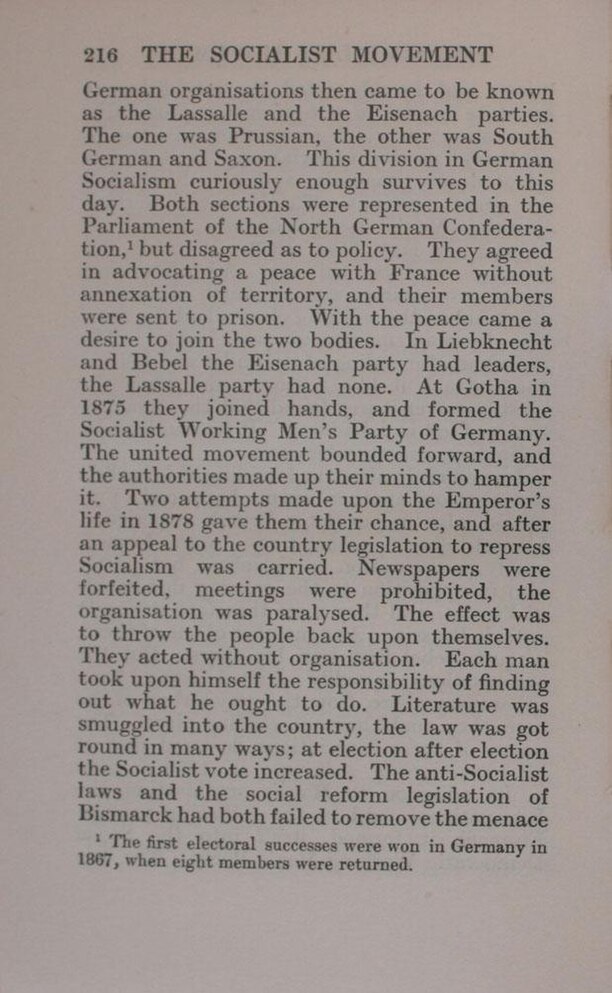German organisations then came to be known as the Lassalle and the Eisenach parties. The one was Prussian, the other was South German and Saxon. This division in German Socialism curiously enough survives to this day. Both sections were represented in the Parliament of the North German Confederation,[1] but disagreed as to policy. They agreed in advocating a peace with France without annexation of territory, and their members were sent to prison. With the peace came a desire to join the two bodies. In Liebknecht and Bebel the Eisenach party had leaders, the Lassalle party had none. At Gotha in 1875 they joined hands, and formed the Socialist Working Men's Party of Germany. The united movement bounded forward, and the authorities made up their minds to hamper it. Two attempts made upon the Emperor's life in 1878 gave them their chance, and after an appeal to the country legislation to repress Socialism was carried. Newspapers were forfeited, meetings were prohibited, the organisation was paralysed. The effect was to throw the people back upon themselves. They acted without organisation. Each man took a himself the responsibility of finding out what he ought to do. Literature was smuggled into the country, the law was got round in many ways; at election after election the Socialist vote increased. The anti-Socialist laws and the social reform legislation of Bismarck had both failed to remove the menace
- ↑ The first electoral successes were won in Germany in 1867, when eight members were returned.
